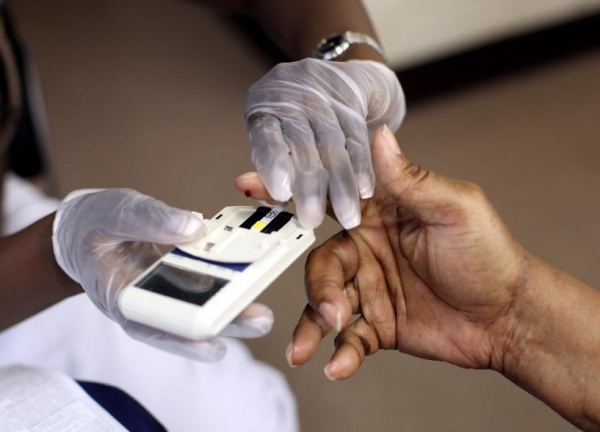-
Tips for becoming a good boxer - November 6, 2020
-
7 expert tips for making your hens night a memorable one - November 6, 2020
-
5 reasons to host your Christmas party on a cruise boat - November 6, 2020
-
What to do when you’re charged with a crime - November 6, 2020
-
Should you get one or multiple dogs? Here’s all you need to know - November 3, 2020
-
A Guide: How to Build Your Very Own Magic Mirror - February 14, 2019
-
Our Top Inspirational Baseball Stars - November 24, 2018
-
Five Tech Tools That Will Help You Turn Your Blog into a Business - November 24, 2018
-
How to Indulge on Vacation without Expanding Your Waist - November 9, 2018
-
5 Strategies for Businesses to Appeal to Today’s Increasingly Mobile-Crazed Customers - November 9, 2018
Worldwide Diabetes Cases Quadruple Since 1980
The World Health Organisation (WHO) announced that the number of people living with diabetes has nearly quadrupled since 1980 to 422 million adults, with most living in developing countries.
Advertisement
In its first global report on the condition, it says most are living in developing countries, with factors driving the rise including overweight and obesity.
Published ahead of the United Nations World Health Day on April 7, the study estimated that the annual global cost of diabetes, including health care needs, exceeds Dollars 827 billion (728 billion euros), adding that the global GDP losses linked to diabetes could reach Dollars 1.7 trillion by 2030.
The WHO released the special report for diabetes in time for the celebration of World Health Day 2016, where it aims to raise awareness in preventing and providing effective treatment for the disease that affects millions of people worldwide.
The report does not distinguish between Type 1 diabetes, where the body cannot make enough insulin and requires daily insulin injections for survival, and Type 2, where the body can no longer produce enough insulin to keep blood sugar at a normal level.
However, Jiang Xia, president of the Tianjin Diabetes Prevention and Control Association, says many of those adults don’t even know they have the disease. We the citizens also owe to ourselves the responsibility to exercise regularly, and to avoid unhealthy diets, which can lead to the development of diabetes.
According to the International Diabetes Federation, around 10 million cases of diabetes were reported in Indonesia past year.
The number of people who suffer from diabetes could double over the next two decades, the World Health Organization said today, sending a warning about the illness on World Health Day. Each theme has aimed to educate people on an important global health issue – previous themes have included mental health, maternal health, food safety and road safety.
It said in 2014, 422 million adults had diabetes, compared with 108 million in 1980. “Improving access to insulin and NCD medicines in general should be a priority”.
Advertisement
World Health Day celebrates the beginning of WHO in 1948, and the organization is taking this year to call for action on diabetes.





























